Intel has shed some specific details for the first time about the new seventh generation Kaby Lake processors suitable for the MacBook and MacBook Air, but as expected, processors suitable for the MacBook Pro have yet to materialize.
Corporate Vice President Navin Shenoy unveiled the technical information for two of the five new Intel Core processors on Tuesday. Intel's U-series is aimed at MacBook Air-like laptops, and the Y-series is intended for slightly higher-end devices like the Retina MacBook and PC convertible laptops.
Intel claims that overall the Kaby Lake architecture gives up to 19 percent better Web performance over similar sixth generation Skylake processors, and 12 percent faster general performance gains. Video processing of 4K streams is said to be over 6 times faster than a computer from five years ago.
Also included with Kaby Lake processors are power efficiency improvements. Intel claims up to 9.5 hours of 4K video playback is possible from laptops shipping in the fall with the new processor.
While the "GT2" integrated graphics in the Kaby Lake U-series processors are capable of better performance than existing processors for Apple's MacBook Air, Apple has historically used slightly higher end graphics in the line. It has been some time since the last product update, with the last revision dating back to March 2015.
The Y-series processor could ultimately find its way into the Retina MacBook, and would be an improvement in every regard over the Skylake processor currently found in the model. However, the Retina MacBook is Apple's most recently updated macOS product, and a refresh less than half a year after the last revision is not expected so rapidly.
The pair of Kaby Lake S-series processors suitable for iMac, MacBook Pro, and other higher-end deployments have been teased by Intel, but not yet detailed. Wide release of the S-series isn't expected any sooner than the beginning of 2017.
Intel revealed in late July that Kaby Lake processors had just started arriving in volume to unspecified manufacturers.
 Mike Wuerthele
Mike Wuerthele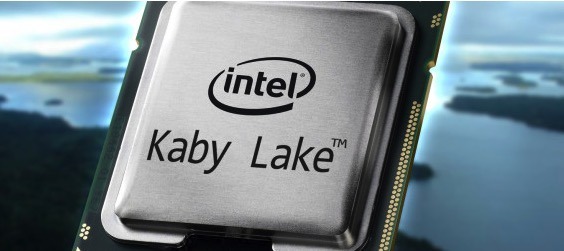
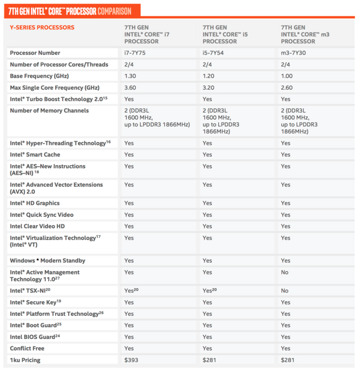
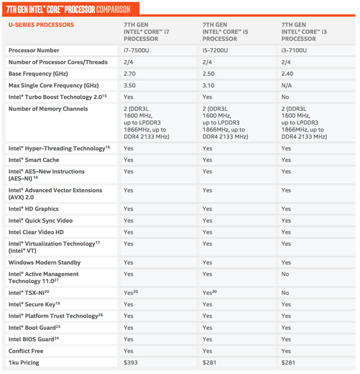
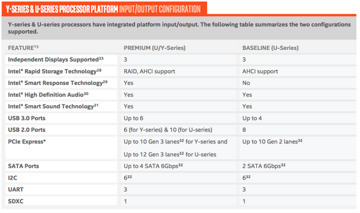







-m.jpg)






 Christine McKee
Christine McKee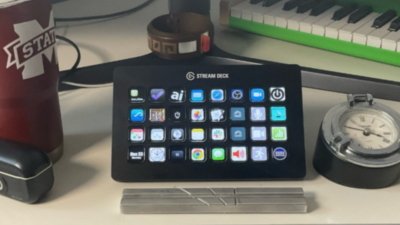
 William Gallagher
William Gallagher
 Amber Neely
Amber Neely

 Andrew O'Hara
Andrew O'Hara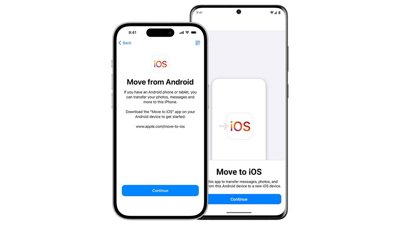

 Sponsored Content
Sponsored Content
 Charles Martin
Charles Martin
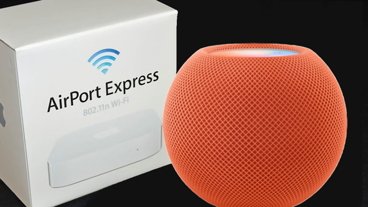







32 Comments
May be it's time for Apple to design/build it's own multi-core ARM M-Processor(Macbook) like current A-processor (iPhone/iPad) and migrate MacOS to it. No need to reply on Intel's CISC processor schedule though Intel can build both Apple's processors in it's 10nm fab. Intel can also help build integrated A-processor CPU/GPU/Wifi/LTE.BT/GPS/etc on single chip like this news --- Samsung launches first Exynos chip with all radios built in( to handle LTE, FM, Bluetooth, WiFi and GPS.)
I think Apple is working toward this. They've made huge gains in their currently processors for iOS devices since their original CPU/GPU. One thing that may go missing is Windows compatibility. I think a lot of people still rely on this with a Mac and it currently works flawlessly (better than some PC's). That could be a huge sticking point is getting people to purchase a Mac with an Apple CPU in it.
BTW people this is exactly why Apple hasn't updated their Mac lineup. There's nothing significant to upgrade to! What do you expect Apple to do if nothing is available that makes a difference? Would a 200 MHz speed bump satisfy you just for the sake of Apple releasing updated products? This has nothing to do with Tim Cook, and everything to do with the fact that there isn't anything to update to. And to me, it makes no sense for Apple to release a totally new iMac or MacBook Pro with last years technology inside it which would basically be what they'd have to do if they were to release any significant updates to their Mac lineup.
Does Apple still have an arrangement with Intel to get certain processors before other companies? In the early days of switching over to Intel they did have such an agreement.